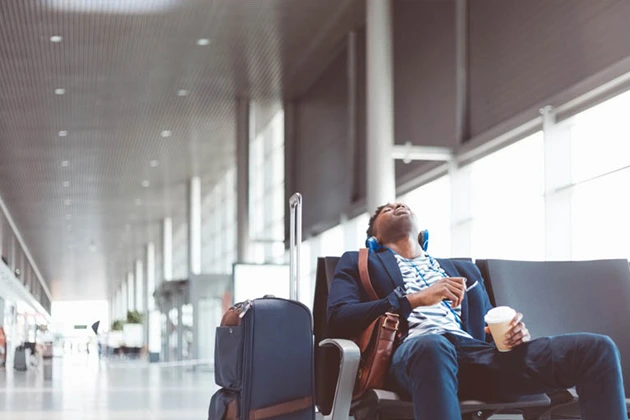Recalibrating your body to a new time zone takes time, and jumping to work straight after a flight can put you under the adverse effects of jet lag. Jet lag doesn’t only affect a person physically but also mentally. For business persons constantly traveling to various time zones, jet lag is a common phenomenon. A long flight can leave you drained, affecting your productivity and performance to a large extent. However, with some rules, one can easily avoid jet lag and remain calm and productive even after traveling a long distance by air.
Jet Lag: What is it? Why it Happens? What are the Symptoms?
Jet Lag is clinically known as desynchronosis or circadian dysrhythmia. This is a temporary condition that affects people’s ability to work as usual after they travel to a different time zone in flight.
Our body is aligned on a 24-hour clock, and a disruption to this natural clock of our body causes jet lag. As a result of this temporary sleep condition, a person’s energy level and stability are affected for a certain time period. Apart from the time zone, several other reasons cause jet lag, such as excess consumption of coffee and alcohol, dehydration, travel fatigue, disrupted sleep timing, and more.
Jet lag leads to a range of issues, both physical and cognitive. Let us have a look-
- Drowsiness
- Lethargy
- Tiredness
- Upset Stomach
- Poor concentration
- Disrupted thinking
- Trouble in concentrating
- Inability to make decisions
- Memory lapses
- Insomnia
- Reduced mental alertness
- Decreased productivity
Although these symptoms last for a shorter period, they can seriously affect your day after you get down from the flight. Now, let us identify various ways to avoid jet lag.
8 Rules to Avoid Jet Lag
Now, coming to the question, ‘How to avoid jet lag?’ Here are five rules that one can follow to prevent jet lag even after traveling to different time zones.
Rule 1: Try sleeping on the plane
While traveling eastwards, try to have as much sleep as possible on the plane. Use earplugs and eye masks to reduce noise and light. This can help you get a better sleep and avoid jet lag.
Rule 2: Take power naps
Taking power naps in between can also help you relax a bit if bedtime is too far. Try to take power naps of no more than 20-30 minutes to ensure a good night’s sleep. This can reduce your tiredness.
Rule 3: Strategic selection of flight timings
Selecting a flight that reaches the destination early in the evening can help you get a good sleep in your new time zone while you reach the destination before night.
Rule 4: Avoid excessive drinking
Boozing the day before or the day of your flight can increase your jet lag. Thus, to avoid jet lag, avoid drinking alcohol before taking the flight. Too much alcohol can disrupt the natural sleep cycle, worsening the jet lag symptoms.
Rule 5: Keep a day handy
Keeping a day handy can get you a good amount of sleep and rest before attending any big event or meeting. Try to arrive at your destination a few days earlier before your big day to avoid the adverse effects of jet lag on the crucial day.
Rule 6: Adjust your schedule before the flight
Adjust your schedule prior to the flight. If flying eastward, try getting up several hours earlier before the flight, and if flying westward, wake up late before you take off.
Rule 7: Follow the jet lag diet
Avoid overeating to prevent getting upset stomachs. Also, avoid eating salty and sugary foods while traveling, and eat fresh fruit and vegetables to stay hydrated while on the plane.
Rule 8: Do simple exercises while traveling
Sitting for long hours on a flight can cause tiredness and make you feel uncomfortable. Doing simple exercises, such as stretching your legs, standing up, and walking a few times whenever it is safe, can help you sleep better.
Following these rules, you cannot only prevent jet lag but also have a comfortable journey while traveling to a different time zone. Thus, to avoid jet lag, following these rules can help.










